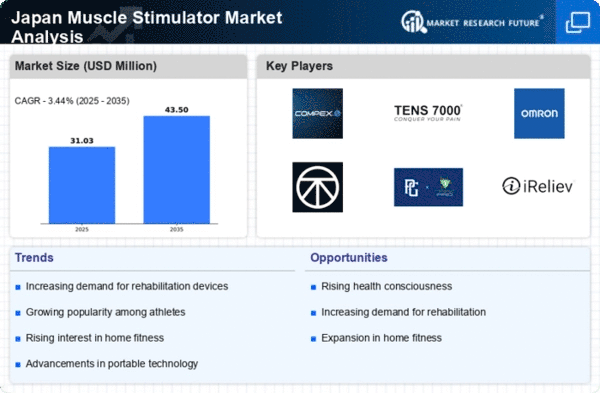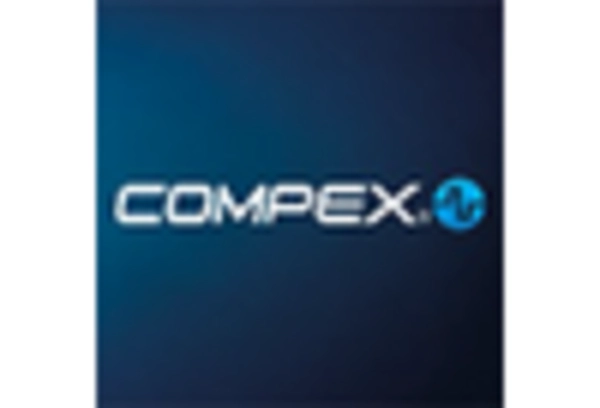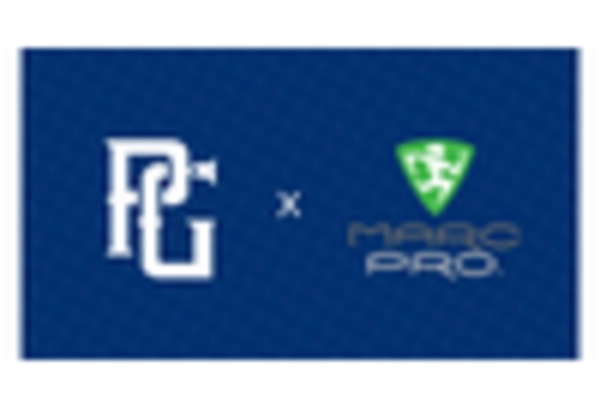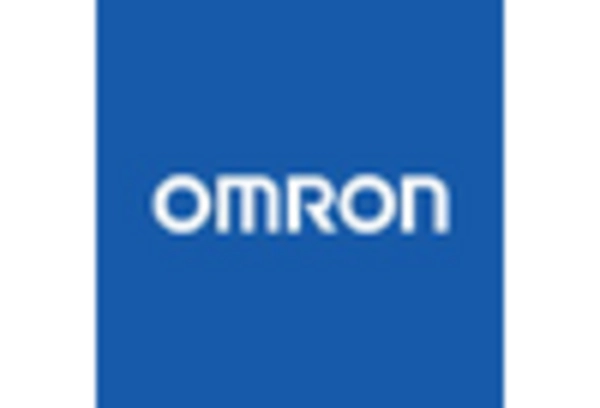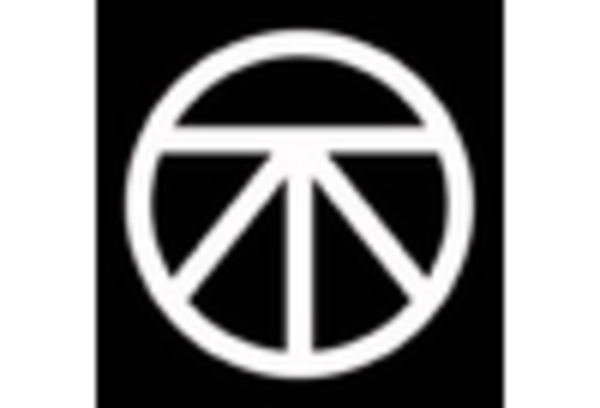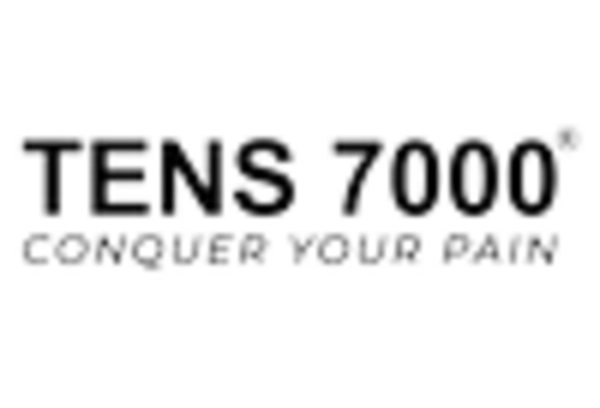Aging Population
Japan's demographic shift towards an aging population is likely to have a profound impact on the muscle stimulator market. With over 28% of the population aged 65 and older, there is a growing need for products that assist in maintaining muscle health and mobility. Muscle stimulators can play a crucial role in rehabilitation and pain management for older adults, potentially leading to increased adoption rates. The muscle stimulator market may see a surge in demand as healthcare providers and consumers recognize the benefits of these devices in enhancing quality of life for the elderly.
Growing Health Awareness
The increasing awareness of health and fitness among the Japanese population appears to be a significant driver for the muscle stimulator market. As individuals become more conscious of their physical well-being, the demand for devices that aid in muscle recovery and enhancement is likely to rise. Reports indicate that approximately 60% of adults in Japan engage in regular physical activity, which correlates with a heightened interest in products that can optimize performance and recovery. This trend suggests that the muscle stimulator market could experience substantial growth as consumers seek effective solutions to improve their fitness routines.
Focus on Preventive Healthcare
The shift towards preventive healthcare in Japan is becoming a notable driver for the muscle stimulator market. As healthcare systems emphasize the importance of maintaining health rather than merely treating illness, consumers are increasingly investing in products that promote muscle health and overall fitness. This trend is reflected in the growing sales of wellness products, with the muscle stimulator market likely benefiting from this proactive approach. It is estimated that the preventive healthcare market in Japan will grow by approximately 7% annually, suggesting a favorable environment for muscle stimulators as part of a holistic health strategy.
Increased Sports Participation
The rising participation in sports and physical activities among various age groups in Japan is likely to bolster the muscle stimulator market. With initiatives promoting sports at schools and community levels, more individuals are engaging in competitive and recreational activities. This trend suggests a growing need for recovery tools, such as muscle stimulators, to prevent injuries and enhance performance. Market data indicates that the sports sector in Japan has seen a growth rate of around 5% annually, which could translate into increased sales for muscle stimulators as athletes seek to optimize their training regimens.
Technological Integration in Fitness
The integration of advanced technology in fitness and rehabilitation is emerging as a key driver for the muscle stimulator market. Innovations such as app connectivity, personalized settings, and real-time feedback are becoming increasingly prevalent. This technological evolution not only enhances user experience but also encourages more individuals to incorporate muscle stimulators into their routines. As the market evolves, it is anticipated that approximately 40% of fitness enthusiasts in Japan will utilize smart muscle stimulators, indicating a shift towards more sophisticated and user-friendly devices.


